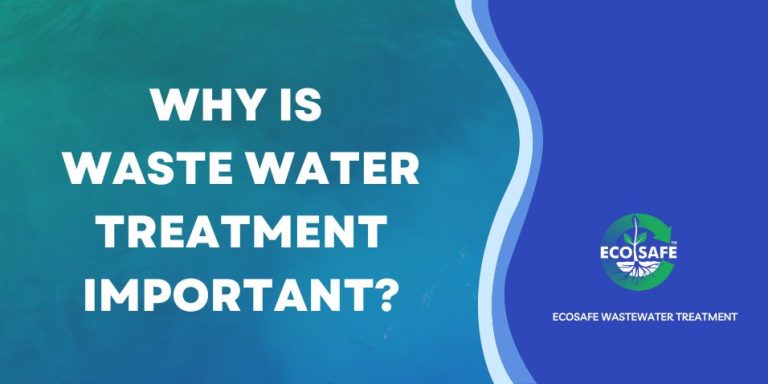Reclaim Waste - The Facts
Reclaim Waste - The Facts
Blog Article
Unknown Facts About Reclaim Waste
Table of ContentsThe 6-Second Trick For Reclaim WasteSome Known Details About Reclaim Waste The Best Strategy To Use For Reclaim WasteThe Only Guide to Reclaim WasteAll About Reclaim Waste
Explore the kinds, incidents, and kinds of fluid waste. Domestic sewage waste refers to the waste and items from a property sewage-disposal tank. This sort of waste is developed by humans in residences, institutions, and other structures. This only includes sewage-disposal tanks that have a drain area. The proper monitoring and disposal of residential sewer waste require fluid waste to be moved to a sewage therapy plant where the proper methods and tools are related to cleanse and deal with waste.
Business waste typically consists of prospective threats, such as flammable materials or a mixture of liquid and strong waste items, and requires a much more innovative and detailed disposal procedure. The disposal of commercial waste usually involves the purification of waste before transport to make sure risk-free and appropriate disposal. Hazardous waste is produced from by-products and drainage of industrial processes and production.
This type of waste can not make use of the very same sewage management transportation or processes as septic or commercial liquids. The hazardous waste monitoring procedure requires the assessment and testing of liquid waste prior to it undertakes the disposal procedure (liquid waste removal melbourne). Drainage waste is the fluid waste that comes from runoff and excess stormwater in extremely inhabited areas or cities
Runoff waste can trigger contamination and flooding if not managed correctly. Find out more regarding drain cleansing and waste administration. Making sure correct waste monitoring can stop catastrophes and decrease environmental injury. Both individuals in residential setups and professionals in commercial or manufacturing markets can benefit from understanding the procedures and guidelines of liquid waste administration.
Fascination About Reclaim Waste
Get in touch with PROS Services today to discover our waste management and disposal services and the correct methods to look after the liquid waste you create.
(https://soundcloud.com/reclaimwaste1)This supposed 'wastewater' is not only an essential resource however, after therapy, will be released to our land, rivers or the ocean. Made use of water from commodes, showers, baths, cooking area sinks, laundries and commercial processes is understood as wastewater.

water made use of to cool equipment or clean plant and tools). Stormwater, a type of wastewater, is runoff that moves from agricultural and metropolitan areas such as roofing systems, parks, yards, roadways, paths and rain gutters right into stormwater drains, after rainfall. Stormwater moves unattended straight to neighborhood creeks or rivers, eventually reaching the sea.
Reclaim Waste for Beginners
In Queensland, a lot of wastewater is treated at sewage treatment plants. Wastewater is moved from residential or commercial websites via a system of sewage systems and pump terminals, called sewerage reticulation, to a sewage treatment plant. Local governments develop, preserve and operate most sewage treatment plants. Operators are accredited under the Environmental Management Act 1994 to discharge treated wastewater at an appropriate ecological standard into waterways.
The Department of Natural Resources recommends local governments about handling, operating and keeping sewage systems and treatment plants. In unsewered areas, city governments may require householders to install specific or household sewer treatment systems to treat domestic wastewater from bathrooms, cooking areas, restrooms and washings. The Division of Natural Resources authorizes the use of house systems when they are shown to be reliable.
Most stormwater receives no treatment. In some brand-new communities, therapy of some stormwater to eliminate litter, sand and gravel has actually started making use of gross pollutant traps. Wastewater treatment takes place in 4 stages: Gets rid of strong issue. Bigger solids, such as plastics and other objects mistakenly discharged to sewage systems, are gotten rid of when wastewater is gone through displays.
Wastewater then moves into huge storage tanks where solids settle and are removed as sludge. Oil and scum are skimmed from the surface area. Uses little living organisms referred to as micro-organisms to break down and get rid of continuing to be liquified wastes and great bits. Micro-organisms and wastes are included in the sludge. Eliminates nitrogen and phosphorus nutrients that might cause algal blossoms in our rivers and intimidate aquatic life.
The 7-Minute Rule for Reclaim Waste
Nutrient removal is not offered in any way sewage treatment plants since it needs costly specialized devices. It is becoming more typical in Queensland. Clear fluid effluent produced after treatment might still have disease-causing micro-organisms. If this effluent is launched into waterways such as rivers or the sea, the micro-organisms will eventually die out.

This normally suggests wastewater has actually to be treated or contaminants eliminated prior to it can be released to waterways. Most wastewater flows right into the sewage system. Under the Act, local federal governments provide approvals and permits for environmentally pertinent activities (ERAs) including wastewater releases that could have a regional influence. The department carries out authorizations and permits to Ages involving wastewater launches that might have a local or statewide effect.
Our Reclaim Waste Ideas
Surveillance provides factual info concerning water quality and can confirm that permit conditions are being met. The info acquired through monitoring provides the basis for making water top quality choices.
Report this page